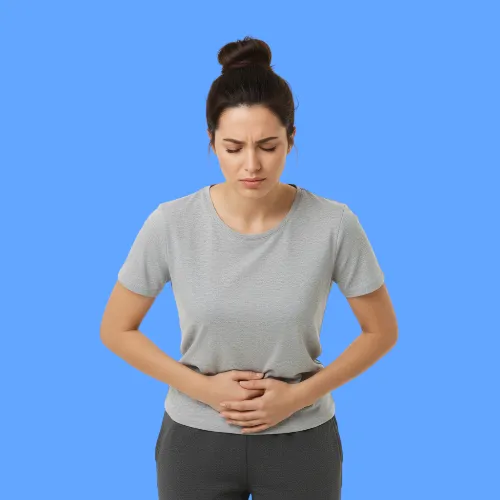What is cystitis?
Cystitis is a common condition that affects the urinary system. It occurs when the walls of the bladder become inflamed due to infection or irritation, and the cause is often bacterial.
However, it can also result from other factors such as medications, catheter use, or even allergies. Women are more prone to cystitis due to the short length of the urethra, which makes it easier for bacteria to reach the bladder.
What are the causes of cystitis?
The infection happens when bacteria enter the urinary tract or due to other factors that affect the bladder, including:
- Bacterial infection, especially Escherichia coli
- Sexual activity that pushes bacteria toward the urethra
- Use of contraceptives like diaphragms or spermicides
- Pregnancy due to hormonal changes
- Menopause and hormonal shifts
- Long-term use of urinary catheters
- Weakened immunity, such as in diabetes or chemotherapy
- Exposure to irritants like scented soaps or hygiene products
What are the common symptoms of cystitis?

Cystitis symptoms often appear suddenly and can disrupt daily life. They include:
- Burning or pain during urination
- Frequent and urgent need to urinate
- Passing small amounts of urine despite feeling the urge
- Cloudy or strong-smelling urine
- Blood in the urine
- Pain in the lower abdomen or pelvis
- Feeling pressure in the bladder
- Mild fever, especially in children or the elderly
When should you see a doctor?
Some situations require immediate medical attention to avoid complications, such as:
- Persistent pain or burning during urination for more than a day
- Blood in the urine
- Pain in the back or one side
- Fever and chills
- Nausea or vomiting
- Recurrent cystitis infections
- Symptoms reappearing after treatment
- Daytime bedwetting in children
What are the treatment options for cystitis?
Treatment depends on the cause and may include effective home or medical options, such as:
- Antibiotics to treat bacterial infections
- Antivirals or antifungals depending on the type of infection
- Warm compresses to relieve pain
- Drinking plenty of water
- Avoiding caffeine and acidic drinks
- Taking cranberry supplements
- Using pain relievers like paracetamol
- Avoiding sexual activity until recovery
- Changing soap or hygiene products
Can cystitis be cured?
Yes, in most cases, cystitis can be completely cured, especially if treated early and properly.
Recovery speed depends on the type of infection, overall health, and adherence to treatment and preventive advice.
What are the prevention tips for cystitis?
Following healthy habits can reduce the risk of infection, including:
- Urinating after sexual activity
- Drinking water regularly
- Avoiding holding urine for long periods
- Wearing cotton underwear
- Avoiding scented soaps or irritating products
- Cleaning the genital area from front to back
- Boosting immunity with a healthy diet
- Consulting a doctor if symptoms recur
What are the possible complications of cystitis?
If not treated properly, cystitis can lead to serious complications, such as:
- Infection spreading to the kidneys
- Permanent kidney damage, especially in children and the elderly
- Persistent blood in the urine
- Chronic or interstitial cystitis
- Weak bladder or urinary incontinence
- Recurrent infections
Frequently asked questions about cystitis
Is cystitis contagious?
No, but it may occur after sexual activity due to bacterial transfer.
Can men get cystitis?
Yes, but it is more common in women.
Does cystitis affect pregnancy?
It may increase the risk of infection during pregnancy and requires medical follow up.
Can cystitis be treated without antibiotics?
In mild cases, yes, but a doctor should be consulted.
Article summary
Cystitis is a common but bothersome condition, often caused by bacterial infection, and it affects daily life quality. It can be easily treated if diagnosed early.
Prevention depends on healthy habits and personal hygiene. Don't hesitate to see a doctor when symptoms appear to avoid potential complications.